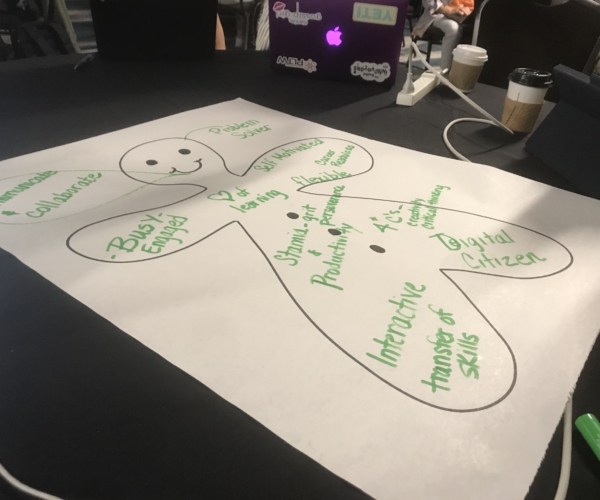If school administrators and teachers needed to know one word that described what their school librarian does, it would be collaboration.
“It’s what we do,” said Future Ready Librarians spokesperson Shannon McClintock Miller during the Librarian Media Specialists Summit at FETC®. “If we didn’t collaborate, then we wouldn’t be able to do our jobs.”
Rather than tell attendees what collaboration is, Miller asked the librarians in the audience how they defined it.
A second-year specialist said, “I really have to advocate for myself as a resource because people don’t always know what I do or what the library offers.” As a collaborator, her job is to “spark ideas” and provide opportunities to teachers. “I encourage teachers to plan and co-teach with me. But it’s challenging.”
Another said, “We support the heavy lifting of instruction and personalize what teachers need and are comfortable with.”
Miller then asked the librarians about their collaborators. Some specialists have partnered out of necessity. A librarian from a Florida district said that one of her board members made a comment about cutting media specialist funding. “So I invited her to collaborate with me in school,” said the librarian. “We worked on makerspace activities, and eventually, she saw how important the role of the media specialist was.”
A specialist from Williamstown, Massachusetts, mentioned that her local college was “vested” in having a strong public school. “Higher ed professionals created a work-study program with our library and pay college students to come into the school to tutor and support our kids,” she said.
The school resource officer at another district has teachers fill in a book wish list at the library’s book fair. “If the book is purchased, then he comes to the class—dressed up in an outfit that reflects the book fair theme—and reads the book to the kids,” said one attendee. “He has a lot of contacts so he brings in prizes for the kids at the library. It’s a nice partnership.”
Two attendees said they worked with their public library to bring in guest authors who speak at school events and to schedule book groups. “Our group discussions then transfer to summer reading assignments,” said one of those two attendees. One public library has given elementary schoolers their first library cards. “Kids are using the library now,” said a librarian. “They have a makerspace that the kids can check out.”
Another attendee said she was at FETC® because of her school’s PTA.
Collaborating with administrators
“Without a supportive administration, we wouldn’t be able to have the collaborative leadership that exists at my district,” said Miller, who serves as a K-12 district teacher librarian at Van Meter Community School District in Iowa.
Luckily, her elementary principal began as a kindergarten teacher, so he spends much of his time in the library and classroom. “He sees not just what we do, but what other people in supportive roles do, which helps us become unstoppable.”
To drive her point home, Miller shared a story that happened after she had left her district to pursue another opportunity. “My superintendent texted me directly, so I called him back, and he said, ‘We need you to come back because everything is falling apart,’” she said. “It took me years to build that relationship so administration understands what I do. I always tell people, ‘Don’t be discouraged. It can happen.’ Tell administrators that you can impact student achievement and that you are an expert. It is about building those relationships.”
For all FETC® coverage, click here.









